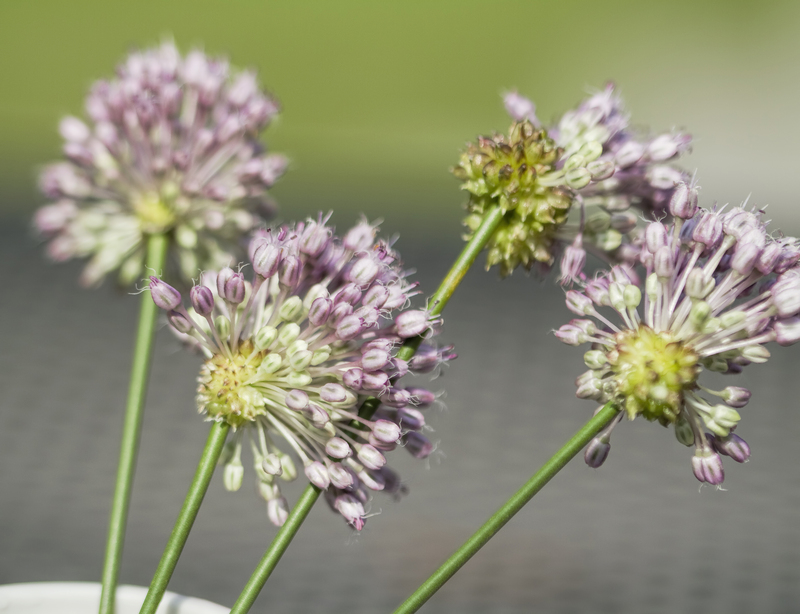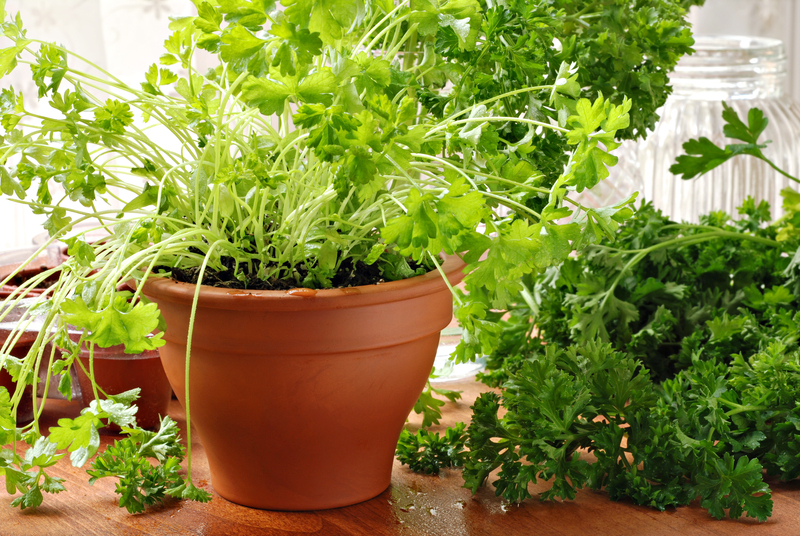Organic Waste Wizardry: Cultivating Fertility in Soil
Posted on 28/05/2025
Organic Waste Wizardry: Cultivating Fertility in Soil
Unlocking the hidden magic in kitchen scraps, garden trimmings, and other organic castaways is at the heart of sustainable gardening and agriculture. This comprehensive guide delves deep into the practice of converting organic waste into rich nutrients for soil, explaining not just the 'how' but the vital 'why' behind organic waste wizardry. Whether you are a backyard gardener, an urban farmer, or a steward of community green spaces, learning to harness organic waste for soil fertility can revolutionize your growing experience.
Why Organic Waste Matters for Soil Health
Modern agriculture and gardening are at a critical crossroads. Decades of relying on synthetic fertilizers and disregarding the value of natural cycles have left many soils depleted, compacted, and lifeless. Organic waste offers a biological and ecological solution to this problem by restoring fertility, boosting biodiversity, and sequestering carbon. Let's examine the core benefits:
- Nutrient Cycling: Organic waste returns essential nutrients--like nitrogen, phosphorus, and potassium--back into the soil in a naturally balanced manner.
- Improved Soil Structure: The addition of organic matter enhances soil porosity, aeration, and water retention.
- Microbial Activity: Organic waste feeds beneficial soil microorganisms, which in turn support healthy plant growth.
- Waste Reduction: By composting and recycling organics, landfill waste is minimized, reducing greenhouse gas emissions.
- Cost-Effective: Harnessing household and farmyard waste for soil enrichment reduces the need for chemical fertilizers and associated costs.
Organic waste wizardry transforms "garbage" into gold, paving the way for truly sustainable, closed-loop food systems.

Types of Organic Waste Used to Boost Soil Fertility
Not all waste is equal in the eyes of the garden. Organic waste for soil enrichment spans several impactful categories:
1. Kitchen Scraps
- Vegetable and fruit peels, coffee grounds, tea bags, eggshells: Rich in nutrients and generally safe for composting.
- Avoid: Meat, dairy, and oily foods, which can attract pests or hinder decomposition.
2. Yard and Garden Residues
- Grass clippings, leaves, pruned branches, plant trimmings: These contain valuable carbon and nitrogen.
- Woody prunings: Preferably shredded to speed up decomposition.
3. Animal Manure
- Composted chicken, cow, sheep, or horse manure: Packed with nutrients and micro-organisms that energize the soil.
- Note: Always compost manure before application to kill pathogens and weed seeds.
4. Crop Residues and Cover Crops
- Green manures (e.g., clover, vetch, rye): Grown specifically to be turned into the soil for added fertility.
- Post-harvest plant stems and roots: Decompose over time, releasing nutrients.
5. Specialized Organic Amendments
- Worm castings (vermicompost): A nutrient powerhouse produced by earthworms digesting organic waste.
- Biochar: Charred organic matter that boosts soil structure and microbial life.
The Processes Behind Organic Waste Wizardry
Turning a mixture of organic waste into a potent fertility-boosting soil amendment requires knowledge, effort, and a bit of patience. Here are the key processes:
Traditional Composting
- Hot Composting: Involves building piles with the right ratio of "greens" (nitrogen-rich) to "browns" (carbon-rich) and maintaining moisture and aeration. This can yield finished compost in 2-3 months.
- Cold Composting: Lower maintenance; simply pile up organic waste and let nature do the slow work, often taking a year or more.
Best Practices for Effective Composting:
- Maintain a carbon-to-nitrogen (C:N) ratio of 25:1 to 30:1 for optimal decomposition.
- Keep compost moist, like a wrung-out sponge.
- Turn or aerate the pile every 1-2 weeks to supply oxygen.
- Chop large materials to accelerate breakdown.
Vermicomposting (Worm Composting)
This technique utilizes red wiggler worms (Eisenia fetida) to rapidly devour kitchen waste and produce "black gold"--worm castings full of readily available nutrients and beneficial microbes.
- Suitable for indoor or small-space composting.
- Produces compost faster than traditional methods, often in under two months.
- Casting tea (liquid extract) can be used as a powerful natural fertilizer.
Bokashi Fermentation
Bokashi is an anaerobic fermentation process that utilizes specific microbes to ferment organic waste, even including meat and dairy. The result is pre-composted, acidic material that can be buried in the garden to finish breaking down.
- Excellent for apartments and places with limited outdoor space.
- Fermentation process neutralizes odors and speeds up decomposition when buried.
- Reduces air pollution from methane release compared to landfills.
Mulching & Sheet Composting
- Mulch: Applying organic materials (leaves, straw, wood chips) over soil to conserve moisture, suppress weeds, and gradually decompose into rich humus.
- Sheet Composting: Spreading layers of green and brown waste directly onto garden beds and allowing it to rot in place ("lasagna gardening").
Soil Fertility Magic: How Organic Waste Works Wonders
Utilizing organic waste to build soil fertility creates a cascade of beneficial effects. Here's how the magic happens:
- Nutrient Enrichment: As organic waste breaks down, nutrients are released in plant-accessible forms, providing steady, slow-release feeding that synthetic fertilizers can't match.
- Soil Microbial Boost: Organic matter acts as food and habitat for beneficial microorganisms, fungi, and earthworms--essential players in nutrient cycling, disease resistance, and soil aeration.
- Improved Structure & Water Holding: Humus--the end product of decomposition--binds soil particles into stable aggregates, enhancing infiltration, drainage, and water retention.
- Carbon Sequestration: Organic-rich soils lock atmospheric carbon away, helping mitigate climate change.
Best Practices for Safe and Effective Organic Waste Recycling
To reap the full rewards of organic waste wizardry without risk, follow these guidelines:
- Compost animal manures and any potentially diseased plant matter fully before use to eliminate pathogens.
- Avoid adding glossy papers, synthetic materials, or chemically treated wood to compost or soil.
- Monitor compost temperature (ideally 54-65?C/130-150?F) for efficient pathogen kill and decomposition.
- Test soil periodically to track nutrient levels and adapt amendments as needed.
- Respect local laws when processing large volumes of waste (manure, food waste).
Innovations and Advanced Techniques in Organic Waste Utilization
The evolution of organic waste wizardry is marked by exciting new technologies and community initiatives, including:
Community Composting Hubs
- Neighborhood compost drop-off points and municipal programs boost participation and scale impact.
- Finished compost is redistributed to community gardens, parks, and farms.
On-Farm Waste-to-Fertility Systems
- Integration of livestock bedding, crop residues, and food-processing waste into sophisticated on-farm composting operations.
- Closed-loop systems sharply reduce external input costs.
Biochar Blends
- Pairing compost with biochar creates a long-lasting organic amendment, improving nutrient retention and soil health.
Common Pitfalls and How to Avoid Them
Even the best-intentioned practitioners can fall prey to mishaps. Here's how to sidestep frequent errors:
- Unbalanced Compost: Too much green (wet) or brown (dry) waste leads to odor or slow breakdown. Always balance your C:N ratio!
- Neglected Piles: Forgetting to turn or water the pile can stall decomposition.
- Using Uncomposted Waste: Fresh manure or raw food scraps may burn plants or introduce pests.
- Composting Weeds with Seeds: Ensure piles reach high temperatures to neutralize weed seeds.
Enriching Soil for Every Garden: Practical Steps to Get Started
Ready to cultivate soil fertility through organic waste wizardry? Follow this actionable plan:
- Start Collecting: Place a kitchen caddy or compost bin for food scraps. Save yard waste in a designated area.
- Choose a Composting Method: Select the technique that fits your space, climate, and time (e.g., traditional, vermicomposting, bokashi).
- Build Your Pile: Layer greens and browns, maintain moisture, and start turning.
- Apply Finished Compost: Spread mature compost or worm castings 2-4 cm thick over beds, mix into planting holes, or use as mulch.
- Observe and Record: Note improvements in plant vigor, yield, and soil texture.

Beyond the Garden: The Broader Impact of Organic Waste Transformation
Practicing organic waste wizardry not only upgrades your soil and crops but supports global sustainability:
- Reduces landfill waste and methane emissions (a potent greenhouse gas).
- Creates resilient, healthy communities through local food production and soil restoration.
- Protects groundwater and waterways by reducing synthetic chemical runoff.
- Empowers individuals and organizations to engage in climate-positive agriculture.
Conclusion: Embrace the Magic of Organic Waste in Soil
Organic waste wizardry is not a fad--it's the ancient, time-tested art of giving back to the land that feeds us. Through composting, mulching, vermicomposting, and innovative approaches, anyone can unlock soil's hidden potential, forging healthier gardens and a healthier planet.
Ready to start? Let your kitchen and yard waste become the building blocks of fertile, living soil. Whether you manage a flower box on your windowsill or a sprawling homestead, the magic of organic waste transformation is within your reach.
Join the movement! Share your experiences, encourage your community, and spread knowledge about the powerful role of organic waste in cultivating soil fertility. Together, we can regenerate our soils and secure food for future generations.
Frequently Asked Questions About Organic Waste and Soil Fertility
- Q: How long does it take to compost organic waste?
A: With hot composting, 2-3 months; cold composting, 6-12 months. Vermicomposting can finish in under two months, while bokashi takes just weeks before burial. - Q: Can I compost citrus, onions, or coffee grounds?
A: Yes, in moderation. Citrus and onions can go in compost but may slow worm composting if overused. Coffee grounds are rich in nitrogen and excellent in both compost and worm bins. - Q: Is home compost safe for vegetables?
A: Absolutely! As long as it is fully broken down and free of dangerous materials (plastic, treated wood, pet waste), home compost is great for edible crops.
Explore the secrets of organic waste transformation today and transform your soil into a living, thriving ecosystem!
Latest Posts
Sculpting a Sanctuary for Pets and Plants
The Art of Arranging Garden Seating for Ultimate Coziness
3 Essential Tips for Mastering Weed Control
Landscape Artistry: Hedge Trimming Techniques and Shape Innovations

